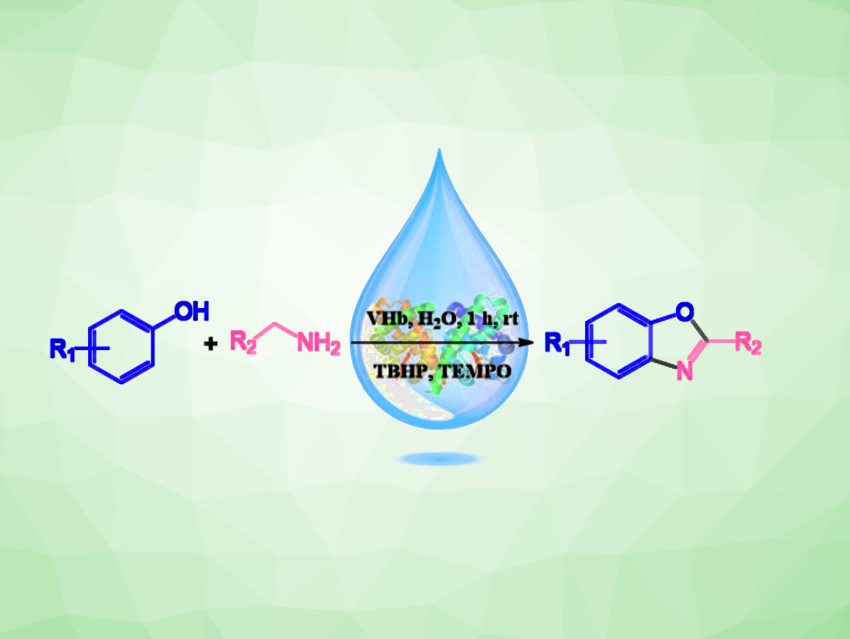Benzoxazole derivatives are important heterocyclic compounds. Benzoxazole units can be found in numerous natural products, and benzoxazoles can have promising pharmaceutical activities. Thus, the development of environmentally friendly and efficient methods to synthesize these heterocycles is an interesting research target. Biocatalysis is a useful strategy for the “green” synthesis of organic compounds. Vitreoscilla hemoglobin (VHb), a bacterial hemoglobin, is a biocatalyst with good stability and potential uses in organic synthesis. It can catalyze, e.g., non-natural oxidative reactions and carbene-mediated transformations.
Lei Wang, Zhi Wang, Jilin Universit, Changchun, China, and colleagues have developed a biocatalytic strategy for the synthesis of 2-substituted benzoxazoles via an annulation reaction of phenols with amines catalyzed by VHb under mild reaction conditions (pictured). The team used tert-butyl hydroperoxide (TBHP) as an oxidant, 2,2,6,6-tetramethyl-1-piperidinyloxy (TEMPO) as a radical scavenger, and water as the solvent.
Under these conditions, a variety of phenols and amines were reacted to give the corresponding benzoxazoles. The products were obtained in moderate to high yields (62 %–94 %) within a short reaction time of 1 h. The work highlights the potential value of the bacterial hemoglobin VHb as a biocatalyst for the development of new environmentally friendly reactions.
- Application of Vitreoscilla Hemoglobin as a Green and Efficient Biocatalyst for the Synthesis of Benzoxazoles in Water,
Yaning Xu, Nan Zhao, Fengxi Li, Chunyu Wang, Hanqing Xie, Junhao Wu, Lei Cheng, Lei Wang, Zhi Wang,
ChemBioChem 2023.
https://doi.org/10.1002/cbic.202300609




